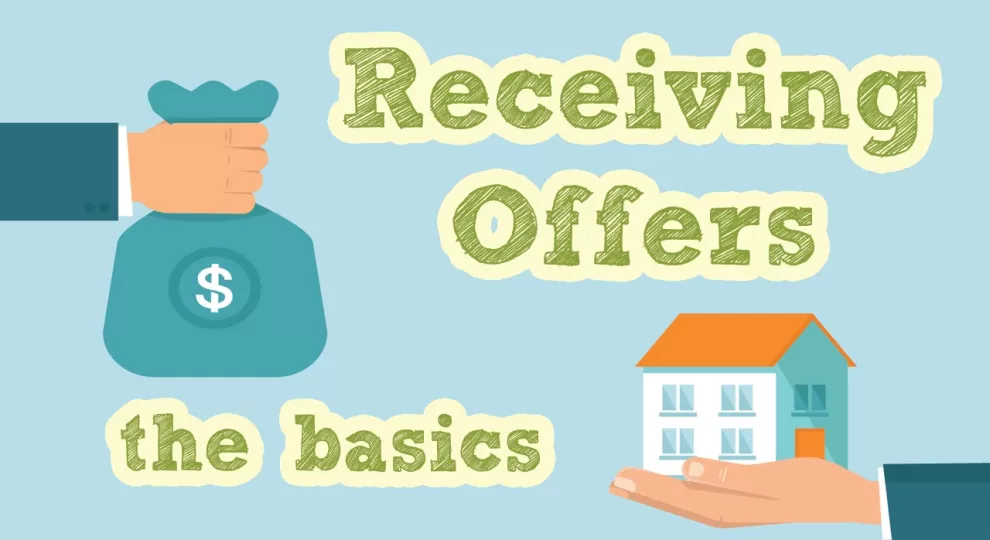
Receiving Offers – The basics for private sellers
What should you know about offers to buy your house? Firstly, it’s important to remember that talk is cheap. Having an offer in writing can tend to indicate a greater level of seriousness from the buyer, but until all the paperwork is signed, nothing is binding.
We always recommend that you continue marketing your property until it’s unequivocally sold. If you have a buyer that’s uncomfortable with this, you can keep your listing active but mark it as under contract. You can also use this as leverage in order to encourage your buyer to proceed quickly.
Just as the buyer doesn’t have to purchase your property simply because they’ve put in an offer, you’re not required to accept an offer simply because it’s been made. This is the case even when the offer is at or above your asking price. You do need to make yourself aware of the legislation in your state however, as, in most states, if you reject an offer that’s higher than your advertised asking price; you generally need to then update your advertised asking price to reflect the actual amount you will accept. Of course, if you’ve turned the offer down for other reasons such as proposed settlement date or inclusions, that won’t apply.
Deciding whether to accept an offer or not can sometimes be a difficult decision. Commonly, the offers you receive soon after listing the property will be the strongest. Despite this being the general rule of thumb, it’s hard to remember that when you’re seeing a flurry of interest in your property and some people choose to wait and hold out for a better offer. If you choose to do this, remember that your enquiry level will drop off over time, and any further offers that do come in may be lower if your property is perceived to have been sitting on the market for some time. Additionally, make sure you factor in any costs or losses that may occur as a result of taking longer to sell.
If you’ve marketed your property well and there is a lot of interest you might also experience multiple offers on your property. This can certainly work to your advantage but we strongly advise that you act fairly and honestly, otherwise you might risk losing all your offers. A simple way to handle this situation is to formally advise all buyers in writing that multiple offers have been made, and that you will accept the best offer within a certain timeframe. To close the sale and minimise stress on all involved this timeframe shouldn’t be too lengthy. There’s no need to disclose what the other offers are, simply ask all buyers to put their very best offer forward.
When there are multiple offers you should also think about the position of the buyer making the offer. An offer that is a couple of thousand lower, but comes from a buyer who has finance ready to go, and no need to sell an existing property is a stronger offer than an offer for a larger amount that comes from someone who doesn’t yet have finance approved.
Hopefully this video helped introduce you to a few of the things you need to know about offers. The key points to remember are nothing is binding, you don’t have to accept any offer you don’t want to, your strongest offers will usually be first, and multiple offers should be handled with care. For more information about handling offers, check out our other videos or visit propertynow.com.au